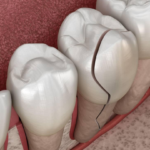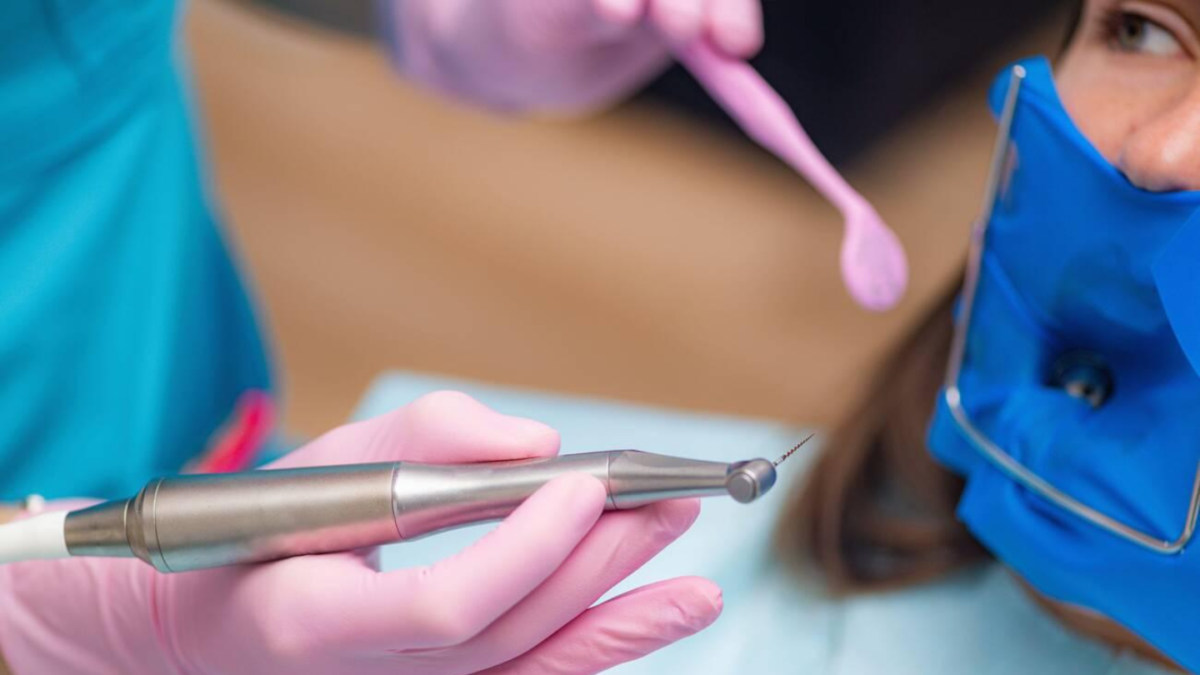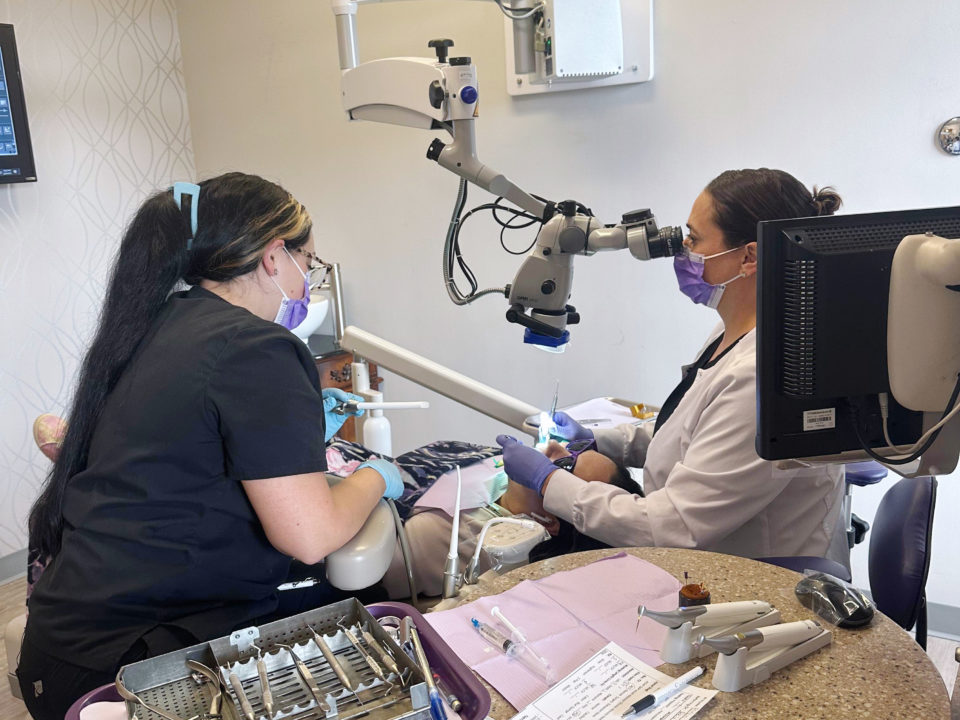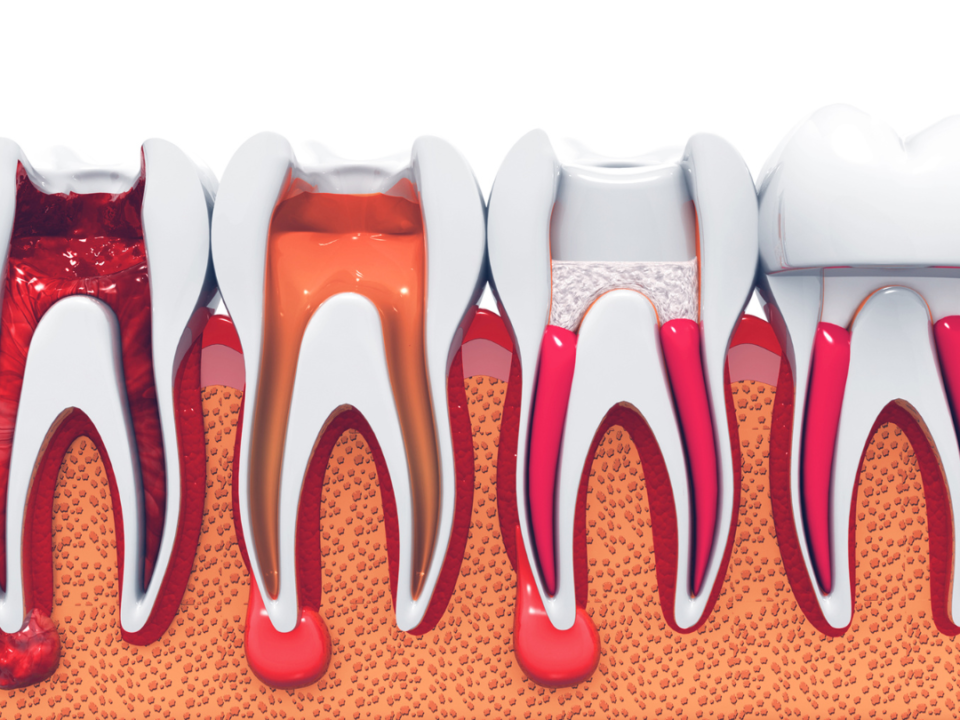
Does A Cracked Tooth Need To Be Pulled
May 5, 2023
Why Choose an Endodontist
June 26, 2023
Does A Cracked Tooth Need To Be Pulled
May 5, 2023
Why Choose an Endodontist
June 26, 2023If you have an upcoming root canal with us at Innovative Endodontics, you should plan now for your recovery process. Thankfully, today’s root canal treatments don’t cause any pain during the procedures with modern anesthesia and in-office care. Here are some root canal recovery tips to help you feel better faster and reduce your chances of problems.
Take Extra Care Until the Anesthesia Wears Off
You will have your mouth numbed during the root canal treatment. However, until the anesthesia wears off, you need to be extra careful about what you do. Do not eat or drink until the anesthesia wears off. If you try to eat while your mouth feels numb, you could bite the inside of your mouth or your tongue without realizing it.
Avoid Eating on the Treated Side
You may feel tempted to return to standard eating patterns as soon as you can. However, if the endodontist recommends a crown, you should avoid eating on the treated side of your mouth until you get the permanent crown. You could crack the treated tooth or dislodge the temporary filling if you bite down on something hard before getting a permanent crown.
Get a Crown If Needed
Root canal-treated teeth become slightly weaker after the procedure due to the endodontist removing a small amount of the tooth and the internal pulp. Treated molars in the back that grind food typically experience high levels of pressure when you eat and need extra support to avoid cracking. Getting a crown on a treated molar restores its strength.
Ask your endodontist if you need a crown to protect the treated tooth. If you do, make sure to follow up with your dentist to get the crown. Until your tooth has the protection of a crown, you risk damaging it, which could cause a secondary infection inside the tooth.
Use Over-the-Counter Pain Medication
Contrary to what many people say, root canals alleviate discomfort, and the procedure itself is a painless, great way to maintain your natural tooth. At Innovative Endodontics, we make it our mission to change this view of the procedure. Our team is the best at what they do. Our comfort menu provides you with everything you need for a relaxing procedure
Most people don’t require taking prescription pain medicine for their post-root canal discomfort. Ibuprofen, in conjunction with Tylenol, works great at alleviating post-operative soreness.
Our endodontists recommend the following method to control post-procedure:
- Take three 200-mg ibuprofen tablets every six hours for the first two days, whether you feel discomfort or not.
- Add one 500-mg acetaminophen tablet with each ibuprofen dose if the ibuprofen alone does not help.
- Take 100 mg of caffeine (about a cup of coffee) twice a day with two of the medicine doses to enhance the pain-reducing properties.
- Do not take more than 3200 mg of ibuprofen in 24 hours.
- Do not use more than 3000 mg of acetaminophen in 24 hours.
- Talk to the endodontist if you cannot take ibuprofen or acetaminophen for any reason.
Don’t wait until after you begin to feel discomfort to take medicine. By taking ibuprofen on the clock in the above amounts, you can prevent discomfort before it starts.
Expect Some Discomfort That Improves
Immediately after the root canal, you may develop discomfort and tenderness in your mouth as the anesthesia wears off. Most people describe the discomfort as pressure or sensitivity in the treated tooth or a tender feeling around the tooth.
Generally, you should feel the discomfort subside after two to three days. Some people may experience sensitivity in the treated tooth that lasts longer than other symptoms because this tends to be the last effect to resolve. You might need one to two weeks before your treated tooth feels completely normal.
Can You Drive, Go to Work, or Smoke After a Root Canal?
Once the anesthesia wears off and you have feeling return to your mouth, you can resume your normal activities. Because root canal therapy is non-surgical, you will only have a local anesthetic used and can drive and return to your regular activities the same day.
Return to Your Regular Brushing and Flossing Routine
Just as with eating, you must wait until your anesthesia wears off before putting anything in your mouth, even a toothbrush and floss. However, you should return to your regular routine of caring for your teeth at home. With regular dental care, you can keep the area clean to prevent cavities, which may result in root canal treatment.
Know What Is Not Normal
As your mouth heals from a root canal, you may experience soreness in the area that generally resolves within 3-7 days. Root canal treatments have a very high success rate. However, a small percentage of people may experience complications. If you have any of the following problems after your root canal, contact your endodontist at once:
- Redness and severe swelling
- Worsening discomfort
- Discomfort or sensitivity you had before the root canal
- The temporary filling falls out
- Fever
- Bad taste in your mouth
- A general feeling of unwellness, especially with any of the above symptoms
Come to See Us at Innovative Endodontics for Expert Root Canal Treatment
You’ll rethink everything you thought you knew about getting a root canal when you visit us at Innovative Endodontics. We work to change the reputation of root canals. If you have discomfort in a tooth, contact us to see if you need a root canal or other type of endodontic treatment or if you have questions about our root canal recovery tips.




